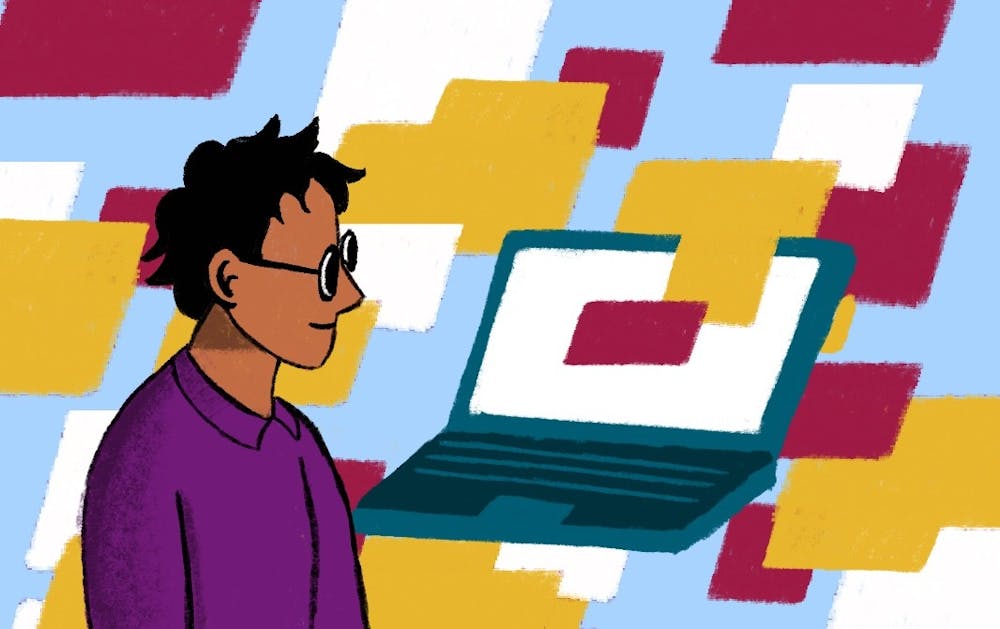In an effort to improve the accessibility of online coursework for students with disabilities, ASU introduced a tool called Ally to Canvas that allows course documents to be downloaded in different ways.
With Ally, students can download electronic braille, audio versions and HTML versions of course documents based on their individual needs.
After being implemented at the start of the Spring 2020 semester, different formats of course documents have been downloaded over 12,000 times, said Chad Price, director of the Disability Resource Center.
Students can find the more accessible formats by going to upload, then clicking on the "alternative formats” tag.
“Within a couple minutes, they can get the document they need in the format they need,” Price said.
In addition, Ally provides professors an accessibility rating for all documents and images that are uploaded for students online and provides feedback on how to make the document more accessible.
Price said Ally will provide instructors suggestions to improve the document's accessibility, and the rating will continue to update as they make changes.
Prior to the implementation of Ally, students who needed access to different types of documents, such as braille, needed to notify the Disability Resource Center and begin the process of getting their coursework converted into the format they needed.
With Ally, the process for online downloads has drastically improved. Emily Bowe, a freshman special education major and quality assurance editor for the Disability Resource Center, said it now only takes a few minutes, compared to the previous two to four weeks it previously took to convert the online documents.
"It reduces a lot of my anxiety about if I will be able to keep pace with my class, am I going to have my stuff on time?" said Bowe, who is visually impaired. ''It increases my efficiency and increases my ability to maintain the same level of work as my peers."
At ASU, over 200 students are visually impaired, and a combined total of over 1,000 students use alternative formats for their coursework, Price said.
According to the National Federation of the Blind, over 175,000 people in Arizona have a visual disability.
The Foundation for Blind Children provides services to over 1,300 students in the state. Those services include translating an entire year's worth of classwork into the required format six-to-eight months beforehand, providing additional instructors to help the students and giving additional resources to the students, said Jared Leslie, director of media center.
Once a student enters college, they are required to be more self-sufficient. Meaning, that getting in touch with a university's disability resource center and ensuring they have access to the required formats of coursework is on the student.
“When you become an adult, everything is on you as a student,” Julie Oliver, the Arizona FBC director of adult transition services said.
A service like Ally speeds up that process, Leslie and Oliver said.
The University Technology Office and Disability Resource Center began exploring options to increase the accessibility for students after the switch from Blackboard to Canvas, Price said.
The process to implement Ally involved a standard testing environment where the new tool went through a security review, according to Tom Castellano, lead architect and senior director of cybersecurity strategy and assurance at the technology office.
Going forward, Ally will allow the Disability Resource Center to focus on other tasks to help students and give them more time to work on bigger projects, like books that need translating, Price said.
State Press reporter Brady Harris contributed to this article.
Reach the reporter at wmyskow@asu.edu and follow @wmyskow on Twitter.
Like The State Press on Facebook and follow @statepress on Twitter.

Wyatt Myskow is the project manager at The State Press, where he oversees enterprise stories for the publication. He also works at The Arizona Republic, where he covers the cities of Peoria and Surprise.




